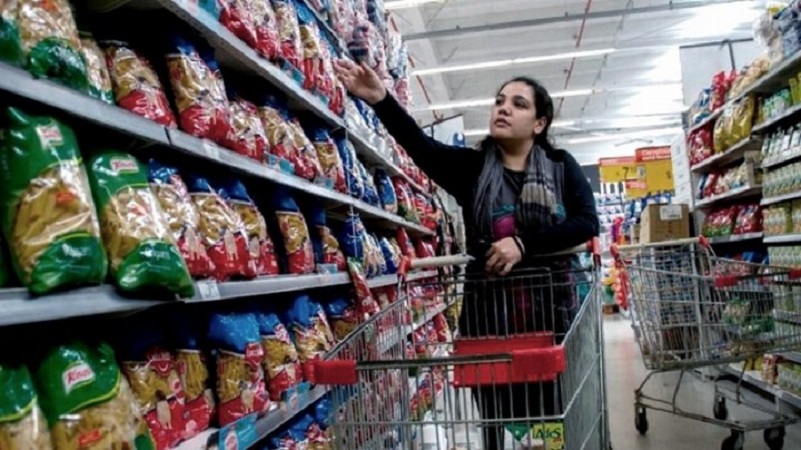
February began with several increases such as energy rates (electricity and gas), fuel, prepaid, telephony. According to projections by consultants, prices do not give up and inflation in February will be higher than 5%.
Last week, INDEC announced inflation for January, which climbed to 6%, and complicated Sergio Massa’s promise to drop to less than 4% for April.
Joaquín Waldman, from Equilibra, explained to Página 12 that “we expect inflation in February to be close to 6%. There were several increases in the price of meat that were not fully captured by the January index and that have a relevant weight”.
The specialist added that “in March there could also be some seasonal increases due to the change of season in clothing and the start of classes that make it more difficult to continue with the disinflation that we saw from the middle of last year until the end of 2022.” “The February number, together with the one we saw in January, would be a setback in the government’s economic strategy, which planned that inflation would decrease bimonthly by bimonthly,” Waldman warned.
Meanwhile, Matías de Luca from LCG told the same outlet that “inflation of 6 percent in January was greatly affected by regulated and seasonal prices, but core inflation was 5.4: it accelerated in January. This is indicating that beyond the fact that there have been scheduled or specific increases, the base rate accelerated, so for February we believe that it will continue with these levels.
According to Agostina Myronec from Ecolatina, “the CPI GBA had a growth of 6.1 percent between the first half of February and the same period in January, this shows that the inflationary rebound in January would be consolidating.”
For its part, according to the Survey of Market Expectations (REM), published by the Central Bank, inflation is projected at 5.5% in February.
The Free Consumers organization reported that, according to its survey carried out in supermarkets and neighborhood businesses in the city of Buenos Aires, the price of the 21 products of the so-called “basic food basket” had an increase of 2.04% during the 1st fortnight of the month of February of the year 2023. Since January 1 the accumulated sum is 9.41%”. The greatest increases were registered in oranges, apples, chard, among others.
Fiction goal: Kelly Olmos confirms that inflation will be 60% in 2023
As long as prices do not loosen up the Minister of Labor, Kelly Olmos defends the inflation target of 60% for this year. “We had a difficult impact with inflation in January, but that does not mean that we cannot meet a goal that we keep in force,” Olmos said in an interview with CNN Radio.
The Government projected in the 2023 Budget an inflation of 60% for this year, a difficult goal to meet considering that the agreement with the IMF implies a greater increase in the rates of public services and adjustments of the official exchange rate that accelerate prices .
The minister defends a fictional goal because it is the percentage that the Government intends to be the reference for this year’s parities. Regarding the first closed national parities, the minister stated “on the national teaching agreement of 33.5% for the first semester, we emphasize that the inflation target of 30 points remains in force. That is the parameter and we are not opposed to the fact that the sectors can look for some additional point of recomposition.” It is an agreement that, as denounced by the teachers, maintains the minimum salary of a teacher below the poverty line.
The Government promised to recompose the wage loss, but 2022 was the fifth consecutive year of a fall in the purchasing power of wages. The collapse of the purchasing power of wages exceeds 20% in relation to 2015.
The union leaders, instead of negotiating downward parities, should end the truce with the Government and lead a plan of struggle to recover everything lost in these years, for an emergency increase for formal, informal, and unemployed workers. and retirements and by automatic updating against inflation.
Source: www.laizquierdadiario.com

